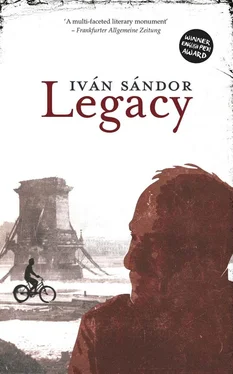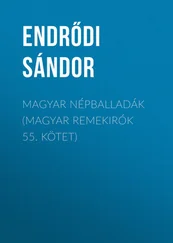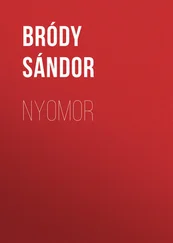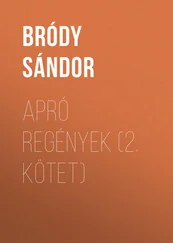Arrow Cross and German squads break into the Bethlen Place Hospital in District VII, a stone’s throw away from the Keleti Railway Terminus. Most of the men are carted off to the bank of the Danube and executed. Arrow Cross shock troops were hauling off to the ghetto even non-Jewish British, American and Swedish citizens classified as hostiles. The daily ration allocated for the ghetto had a calorific value of between 150 and 800 calories. The food was cooked in five kitchens, and the deliverymen were regularly attacked, robbed and shot dead by Arrow Cross patrols. Officials working in the Jókai Street offices of the Swedish Legation, just off the Oktogon, were murdered. Arthur Weiss — owner of the Glass House on Vadász Street, which was being used as an office by the Swiss Legation, and one of the men who had come up with the idea of using the privileges of diplomatic protection — was also one of the victims of the Arrow Cross bloodbath, as I read in documents of that period. According to the log kept by the Institute of Forensic Medicine the bodies of an average of around fifty to sixty people who had been shot in the back of the head were brought in daily. A group was snatched from the ghetto and finished off in Ferenc Liszt Square, again just off Andrássy Avenue by the Oktogon, with the bodies left lying in front of the Japan coffee house. In the streets of the ghetto thousands of bodies were left in the open, and epidemic disease appeared unavoidable.
The physicist is in discussion with Father. Father says we will get more room in one of the second-floor apartments. It’s the warden’s own apartment; they are going to clear out another room. There will be seven of us, which is still better than the cellar. There is lighting, and there is access via the hall as well as through the bathroom. We hand over our mattress. On the warden’s instructions two men come to take away the sack of potatoes.
In the bathroom are empty cans of tinned food, empty sacks, brooms, Wellington boots. In the room are two couches, a divan and a mattress on the floor. The physicist helps Mother place the haversacks. He volunteers to be the one who sleeps on the mattress. On one of the couches a little girl is sleeping under a blanket — she must be about eight years old. Her mother is standing beside her, petrified. The young girl slips out from under the blanket, steps over to Vera, holds her hand out and introduces herself. Will you come and play? Vera is unhesitant in introducing herself by the name she is supposed to use, and the young girl’s mother also introduces herself, saying that they, too, had come up from the cellar.
Mother allocates the sleeping places. Father and the physicist go downstairs to chop wood. Vera and I are given the spare couch; Mother and Father will sleep on the divan. Before leaving, the physicist says that if the empty sacks are brought in from the bathroom they will make a sleeping place, then he can pass the mattress on to someone else. Mother acquired some margarine, so she spreads it on one slice of bread each for Vera and me. Holding hands with Vera, the young girl gazes in astonishment at her eating. Mother spreads a slice of bread for her, too, at which the girl’s mother produces a bag of peanuts from under her blanket and offers these around. She looks at Mother to check whether I can accept. Vera and I take two nuts each from the palm of her hand.
Mother boils water in the kitchen, which she pours into a bowl. I slip off my clothes and stand in the basin as she washes me from head to toe with a soapy rag; I don’t ask where she acquired the soap. As there are no towels I dry myself on another rag. It may be a tea cloth, but it is clean. While Mother washes Vera in the bowl I go out into the hall. There are now several more sitting on mattresses than there had been before. We greet one another.
The door to one of the rooms opens, and the warden’s wife hurries out, slamming the door shut behind her. I carefully open it. The room is very nicely fitted out with furniture of brown walnut: large and small sideboards, an oval table and six chairs. Our own dining-room was like this, except in a lighter colour. There is a glass cabinet on the wall between two windows; that is also reminiscent of our place, likewise at my grandparents’ place — large and small side boards, an oval table and six chairs there, too.
A girl is sitting in an armchair. She is maybe three or four years older than me and has a very pretty face. She is blonde and blue-eyed. Hi there, she says. And who are you? I dare not tread further into the room and give my name: we have just come up from the cellar and are staying in the room next door. That used to be my room, she says. The blanket slips off her. Her legs are very frail and held stiffly together; she is wearing a white skirt. I ask her if she is ill. No, she is unable to walk, not ill; spinal paralysis is all, she says. Do you know what paralysis is?
I do know, as it happens. Gizi’s little girl had paralysis; she was also very pretty, but she died even before Uncle Józsi died. I do not mention this to the girl. When I told her my name she introduced herself. She is called Éva.
Her mother returns. I can see she wants to bawl me out, but the girl says he’s a decent young man. All we were doing was chatting a little, Mummy.
The warden’s wife cleans with a feather duster. She goes out then comes back in; she is constantly doing something. She is tall, like her husband, and has a long bony face and long arms. You can stay if you want. She says it without so much as looking at me. Thank you, I say, but I think I ought to lend a hand to Mother or Father. The girl waves as I leave with a gesture as sweeping as if she were on a railway platform and waving goodbye to a departing train.
Vera had put on a clean blouse after her wash, possibly her last spare blouse, and also thoroughly combed her hair. She smells of soap. The two of us are in the bathroom. I lean over towards her; she holds her face still, and I press my lips to hers. She doesn’t draw away. It feels good to hold my lips to hers, although it’s not something I particularly want to do; I was just trying it out. I had not supposed she would permit it. I get the feeling that for her it doesn’t feel good. Her lips are cold, and yet as if she did still want that she puts her arms round my neck.
We quickly go into the room.
By now I am aware that the physicist is an uncle of the warden’s wife. It was he who had made the arrangements for us to be able to move upstairs.
I go out into the outside corridor. The firing from over by Nyugati Railway Terminus is audible. Sleet is falling. I lean on the railing from which I can see the back yard of the house next door, which is exactly the same as that of our house. There is a section of the yard next to the wall that has not been concreted over, and four people are digging a grave in the mud. The pit is now deep enough. Two corpses, wrapped in sacking, are brought, presumably the ones that were carried out of the cellar at dawn. The bodies are placed carefully in the grave. There are two women and a child standing by the pit; at the back, two rows of men, ten in all, with hats on their heads.
The sound of shelling grows more intense.
The gravediggers rest on their spades.
Baritone, at one side of the pit, sings the Kaddish. He has a beautiful voice and spreads his arms so that his chest seems even more robust, and his voice is powerful enough to be audible even as the detonations are going on.
The physicist is standing next to me; I hadn’t noticed when he came out on to the balcony, but he, too, is leaning over the railing. He takes his glasses off and wipes them.
Aircraft again draw near.
Baritone repeats the Kaddish.
The members of the families are standing motionless in the sleet. When the men start filling in the grave they each throw a fistful of soil into the pit. Baritone glances up, and I wave, but it’s not me he is looking at — it’s as if his gaze were boring through the clouds.
Читать дальше












